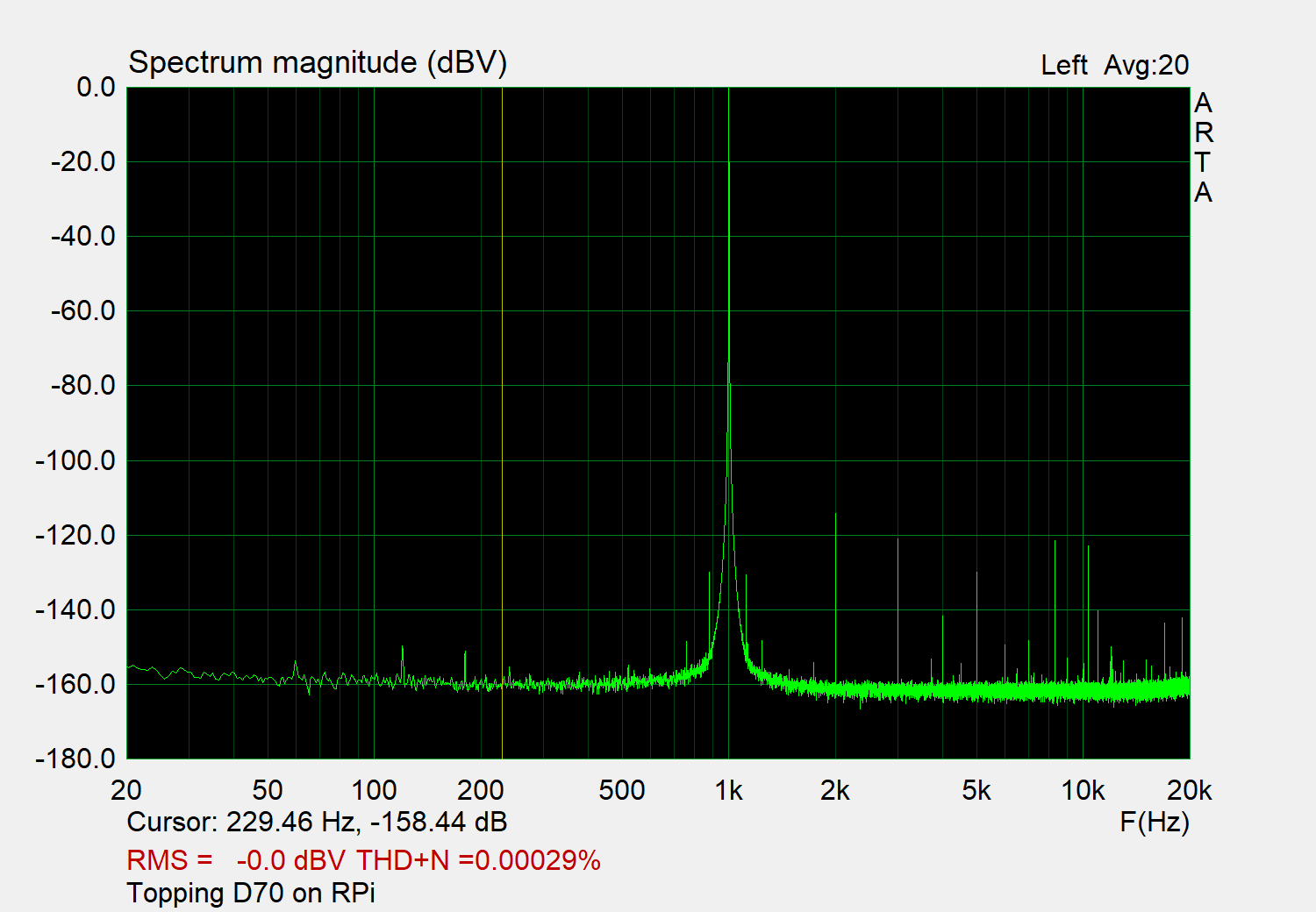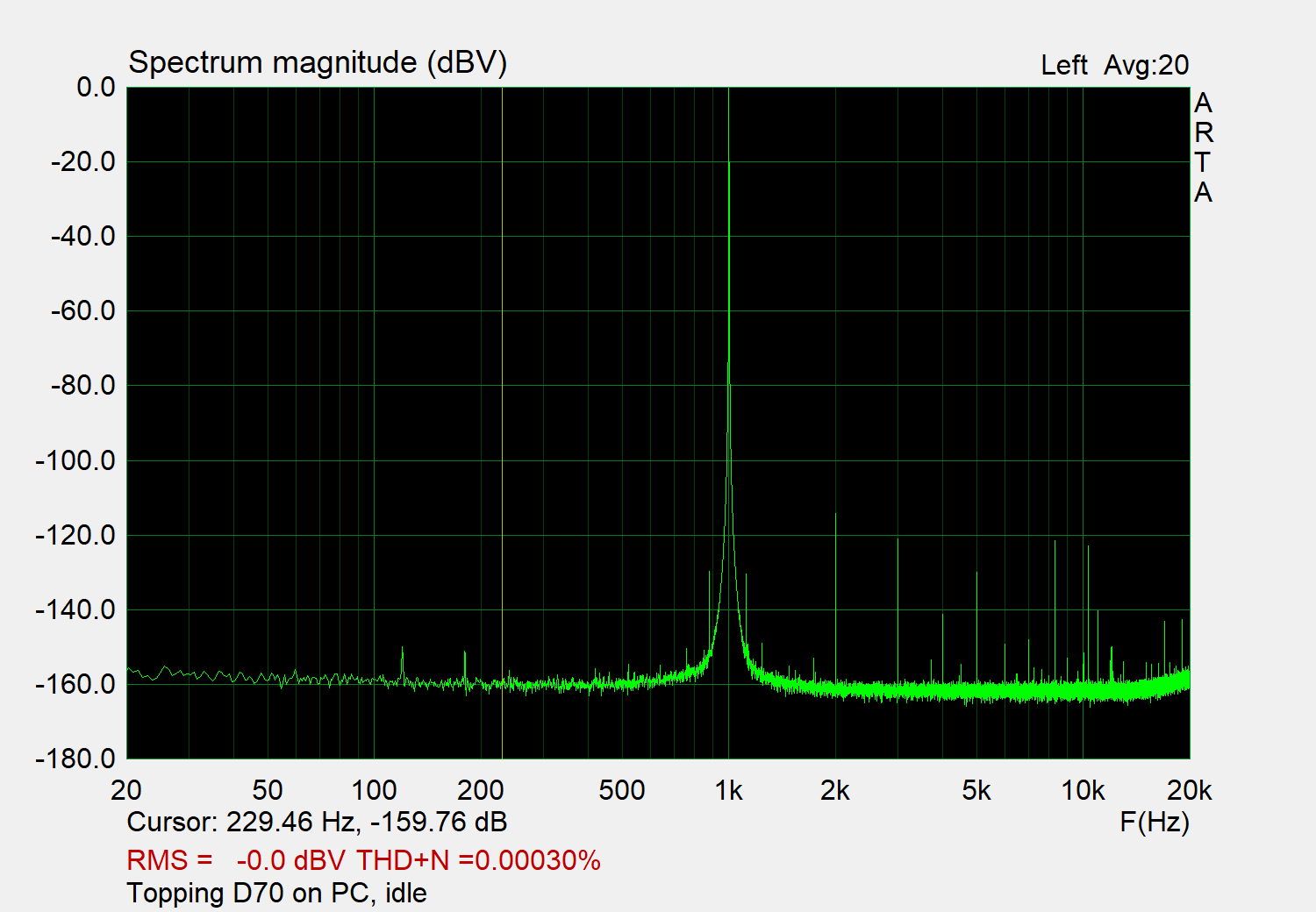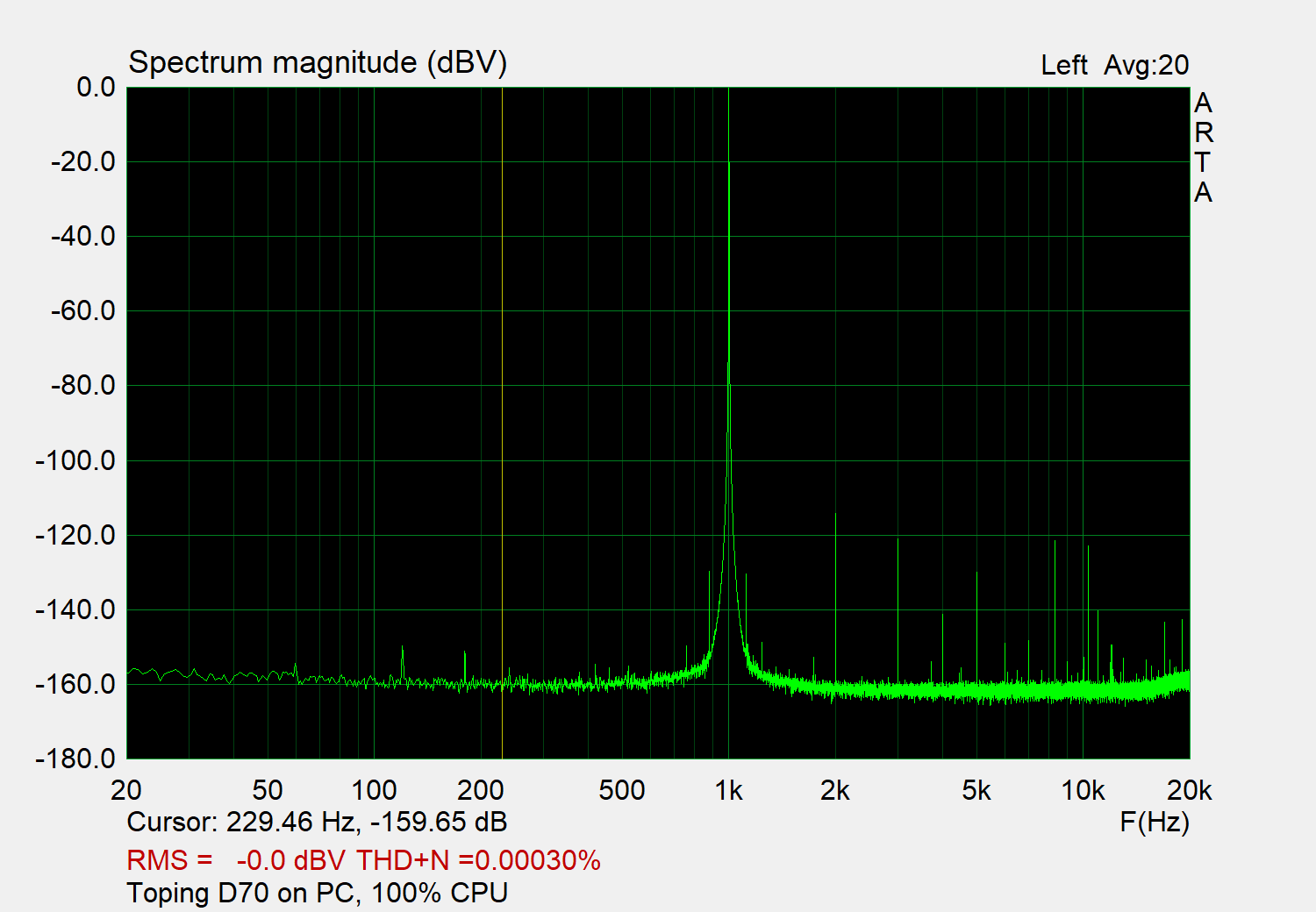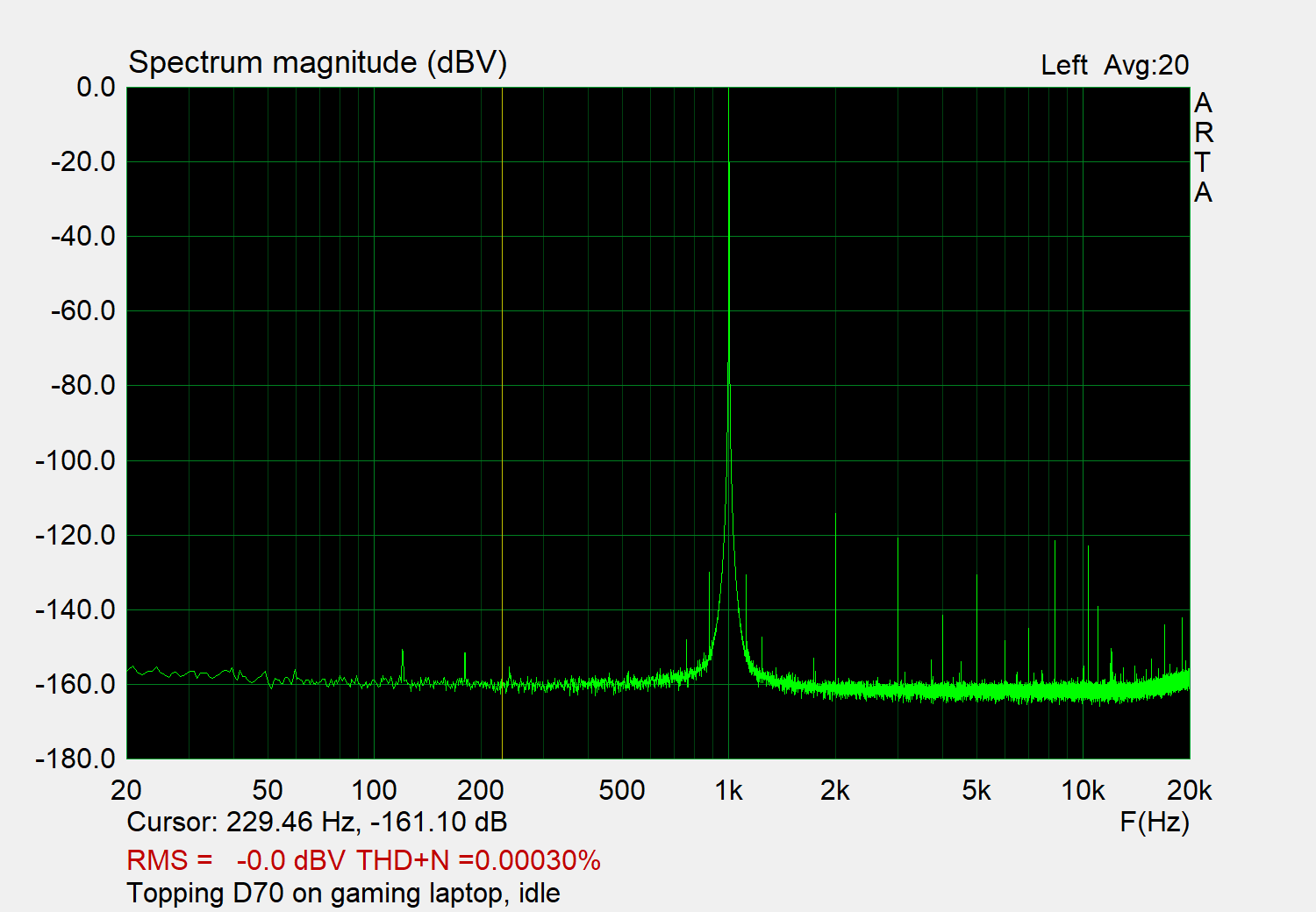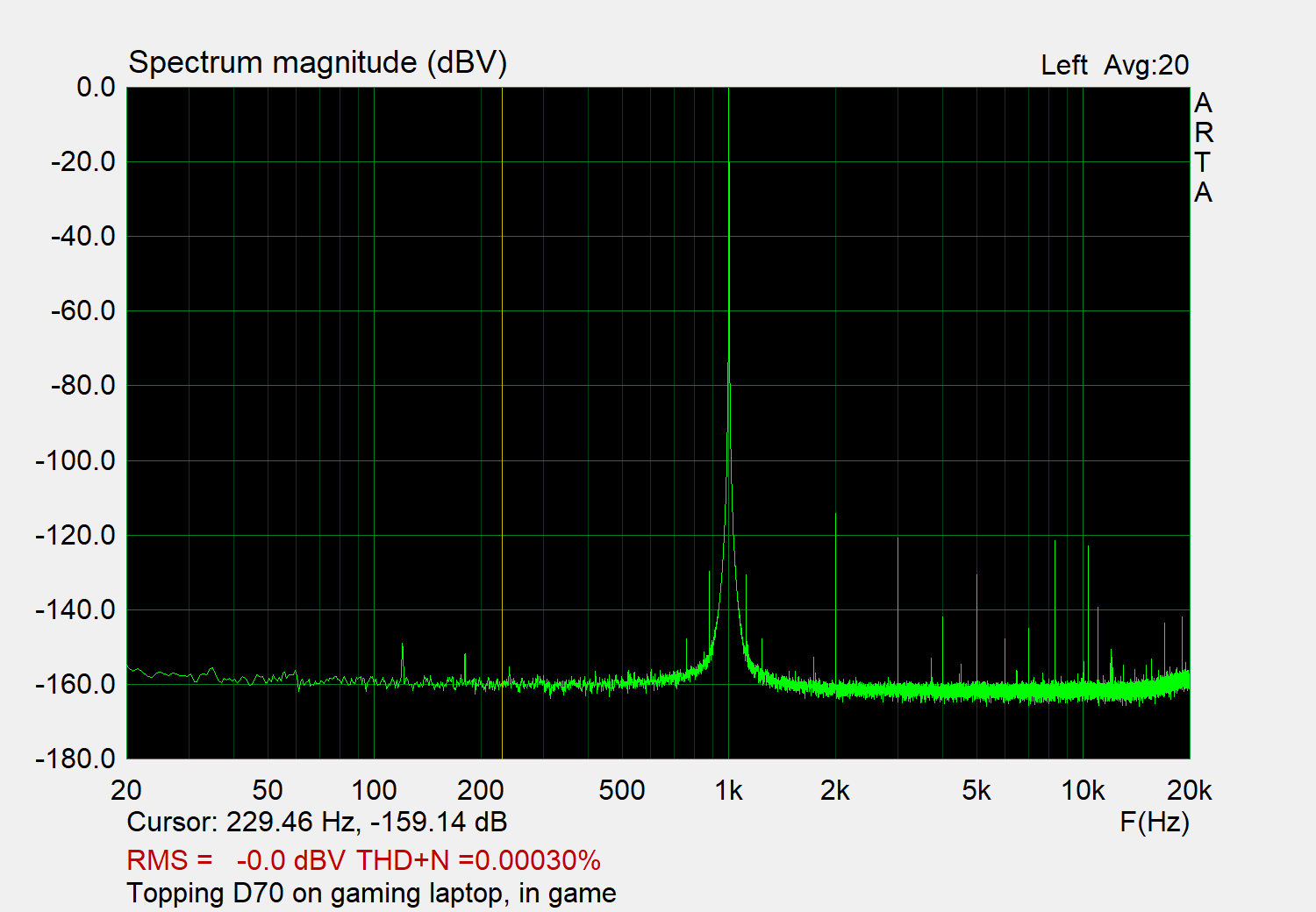Unless you compared some measurements or peeked under the covers, you’re just guessing, based on price.
Definition of “most”? Evidence?
I’m very happily using an Intona USB 2 also, to get rid of audible noise from the power converter of my fan-less core PC to the balanced output DAC.
I’m going from core to DAC with USB, since RPi3B+/4 with Ropieee or Diet-Pi did introduce random ever so slight ticks during playback.
The Intona handles high speed USB, so DSD512 or PCM768kHz work just fine.
Yes. It would be nice if there was the equivalent of an Underwriter’s Lab for audio components, deliberately doing stress tests on the equipment to see how well they weather them. Our measurement gurus don’t seem to do that, though @Archimago seems to sometimes do some ad hoc testing of that sort.
So when you say
And according to you “all these things” includes isolators (since you lump isolators with re-clockers), can you give one example of a USB DAC for a few hundred dollars with USB galvanic isolation built-in?
Or are you just guessing ![]()
Yes, the Topping D70, which is under $500. I measured mine with my new toy - the Cosmos ADC - and I got a THD graph almost identical to Amir’s. He used an audio analyzer, which is supposedly very clean, while my DAC is connected to a back USB port on my very noisy desktop PC. This tells me the D70 is sufficiently isolated.
If you want to build your own, you can get:
- an isolated XMOS-based USB-to-I2S module that accepts up to 768kHz/DSD512 and features a “femto-clock” and a re-clocked S/PDIF output: $100
- a good DAC chip (e.g. ES9038PRO, with “Time Domain Jitter Eliminator and DPLL”): $90
That’s $190 retail for the guts; probably quite lower for bulk. These are commodities.
You’ve ‘moved the goalposts’. It is no longer a ‘single chassis’ for ‘a few hundred dollars’ with ‘all these things’ as you wrote. It seems you were guessing.
And this
shows a lot of misunderstanding.
I’m really confused. The D70 is one single device you can get right now for under $500. As for the “misunderstanding”, I am basing my observations on measurements, not marketing buzzwords.
BTW, I figured you’ll never agree with anything I say, no matter the evidence. This is for my own sake, and for anybody else who might be interested.
The D70 is a great measuring and terrible sounding DAC. But, of course, all DACs sound the same so I am wrong about that too…
It sounds really nice to me.
…and that is all that really matters.
You haven’t really shown any evidence to address to my question.
You’ve shown evidence to answer a different question. No wonder you say you’re confused.
Where is your evidence that the above poster that had RPi clicks solved with Intona, will be solved with your D70 and nothing else? You have none.
D70’s USB input is not galvanically isolated as you seem to think it is.
You lack some basic understanding about the things you write about, but write with such a confident tone and know it all attitude.
Just to clarify:
The clicks were introduced by any and all RPi bridge set-ups.
That’s why direct connection to core had to be explored, but that replaced clicks with constant faintly audible background buzzing, that couldn’t be suppressed by using differential output or even removing +5VDC and GND USB lines.
The Intona fixed that.
I think an important lesson for anyone buying a Cosmos ADC (and even Amir often notes with his APx555…) is that a measurement in one person’s system may look different in another system.
Some understanding of basic electrical principles and at system level needs to be understood
This basic understanding is something @Marian is not demonstrating in his posts.
And products like Intona should not be lumped with re-clockers like he has done… These are highly engineered products that solve real issues.
Well, I guess I’ll have to use my Cosmos without your approval.
I’ll post some measurements in the thread I started a few days ago about the Cosmos. I’m getting an internal noise of about -160dB (consistent with other users’ observations), so it should be capable of measuring the best DACs our there quite comfortably.
You clearly haven’t understood the lesson here.
You need to understand what your results in your system mean - and what they don’t mean.
And you clearly don’t know the difference between a re-clocker and an isolator, so that’s a starting point.
Before you say there is a DAC that has ‘all these things’ for ‘a few hundred dollars’, step back and have a think about if you know what you are talking about.
You can write whatever you want of course but be prepared to be corrected.
Great stuff ! Looking forward to seeing what you find !
Ok, results are in, and I’m posting here, because we’re talking about USB isolators. What I did was measure THD+N for a 1kHz sine wave played on the Topping D70 when connected to a USB port on my RPi, then on my PC and finally on my son’s laptop. These are the graphs:
-
RPi
-
PC, when idle:
-
PC, 100% CPU, 80% HDD:
-
Gaming laptop, idle:
-
Gaming laptop, in game:
I personally see absolutely no difference in the THD+N or in the shape of the graphs - especially the noise floor - that is not statistical variation. If anyone can, please let me know. I can interpret the results in two ways; you can pick your own explanation:
- The PC and the gaming laptop are just as good an audio source as the RPi, far from “horrible”, as the video implies, or
- They are indeed horrible audio sources, but the D70 does an excellent job at isolating the noise “seeping” through USB.
Interestingly, I am getting a THD+N figure of about 0.00030%, very close to Amir’s 0.00034%, which can be found here:
[Review and Measurements of the Topping D70 DAC | Audio Science Review (ASR) Forum](Review and Measurements of the Topping D70 DAC | Audio Science Review (ASR) Forum
The PSU harmonics are quite smaller on my graphs. It’s possible Topping improved on that. Note that it’s an internal PSU, no less.
For reference, my PC is an 8-core Intel Core i9-11900K @ 3.5GHz with RTX 3050 graphics, running Windows 11. The laptop is a Razer Blade 14" 144Hz AMD Ryzen 9 5900HX @ 3.3GHz gaming laptop with RTX 3060 graphics, same OS. My son was playing Rocket League at max quality during one of my measurements.
Those results look fine in your system.
But for the 3rd time, your DAC does not have USB galvanic isolation. In your system, it doesn’t look like you need it…
Read the posts above where an Intona isolator eliminated audible noise, even with a balanced (differential) DAC.
You need to appreciate that electrical systems can be more complex than your own. Even Amir acknowledges this in many of his reviews (if you read carefully).
See, this is how science works. My results are basically a peer review of Amir’s. He used an audio analyzer as both source and measurement device. I used three different audio sources, under different loads, and the Cosmos for measurements. My results are consistent with his and show no significant variation. Based on that, I conclude, with a high degree of confidence, that in the particular case of the D70 - which costs under 500 USD - USB noise is not a concern. That’s what I wanted to show, at your suggestion. I don’t really care what you call galvanic isolation or whether the D70 has it. (If it doesn’t, then USB noise must be a unicorn.)
You can’t keep saying ad nauseam that this applies only to my system. By the same token, the DDC video only applies to the author’s system and has no relevance to anyone else. To get a whopping 30dB noise difference with an isolator, you’d have to have a really bad DAC (which the Apple dongle may very well be) or screw something up. I don’t have any custom wiring in my house, and all my power cables are standard.
When I was talking in the theoretical or simulating various conditions, you kept telling me I need some real world measurements. Now that I do that, they’re not really relevant. Talk about moving goalposts.
I can’t say that your results apply to your system?
You said you are both a physicist and an engineer?
![]()
I actually said your results are fine for your system. What are you talking about here??
![]()
